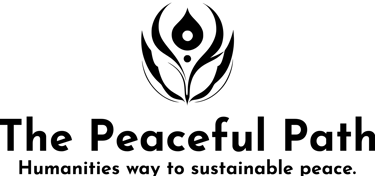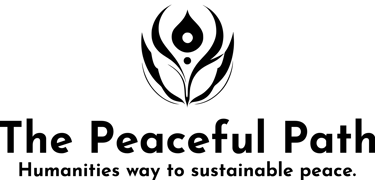A Peaceful Path Workshop in Brandenburg
Discovering Inner Peace at the Sommercamp: A Journey Through the 8 Dimensions
THE PEACEFUL PATH WORKTHE DIMENSIONS OF INNER PEACE
Julia Dencker



I recently had the privilege of leading a transformative workshop titled "Wege zum inneren Frieden" at the Sommercamp organized by Seminarhaus Refugium Hoher Fläming. This experience was both deeply fulfilling and enlightening, as it brought together individuals from diverse backgrounds to explore the profound concept of inner peace through the framework of the 8 Dimensions.
A Personal Journey to Peace
One anecdote that stands out involves a participant who joined the workshop spontaneously after a heated argument with her partner. Feeling overwhelmed, she decided to follow her intuition and attend the session. By the end of the workshop, she shared with the group that she was grateful for her decision. She realized that her inner peace is always available, not contingent on external circumstances. This epiphany—that self-empowerment comes from within—resonated deeply with the entire group. It underscored a core principle of my work: inner peace is accessible to everyone, regardless of external conditions.
The 8 Dimensions of Inner Peace
The 8 Dimensions framework we explored during the workshop provides a holistic approach to understanding and achieving inner peace. These dimensions are divided into internal and external categories:
Mental Dimension:
Insight: Inner peace begins with a calm and clear mind. This involves practices that promote mental clarity, such as mindfulness and meditation.
Research: According to Dr. Jon Kabat-Zinn, mindfulness-based stress reduction (MBSR) is a powerful tool for cultivating mental peace by reducing stress and enhancing emotional regulation.
Emotional Dimension:
Insight: Emotional peace involves recognizing, accepting, and managing our emotions healthily. It’s about allowing ourselves to feel emotions without being overwhelmed by them.
Research: Dr. Daniel Goleman, in his work on emotional intelligence, emphasizes the importance of emotional regulation in achieving inner peace and overall well-being.
Physical Dimension:
Insight: Physical well-being is crucial for inner peace. This includes maintaining a healthy lifestyle through exercise, proper nutrition, and adequate rest.
Research: Dr. John Ratey’s research on the connection between physical activity and mental health highlights how regular exercise can significantly enhance our mood and cognitive function.
Soul Dimension:
Insight: This dimension involves connecting with our deeper purpose and values. It’s about spiritual well-being and finding meaning in life.
Research: Viktor Frankl’s logotherapy focuses on the pursuit of meaning as a central aspect of psychological health and resilience.
Interpersonal Dimension:
Insight: Our relationships significantly impact our inner peace. Healthy, supportive relationships can enhance our sense of peace, while toxic ones can detract from it.
Research: Dr. John Gottman’s work on relationship dynamics underscores the importance of effective communication and empathy in fostering healthy relationships.
Societal Dimension:
Insight: Our social environment, including our communities and societal norms, influences our inner peace. Engaging in community activities and contributing to social causes can enhance our sense of belonging and purpose.
Research: Dr. Robert Putnam’s research on social capital highlights the role of community engagement and social networks in promoting individual and collective well-being.
Environmental Dimension:
Insight: Our physical surroundings, including nature and our living environment, play a crucial role in our inner peace. Creating a harmonious living space and spending time in nature can significantly enhance our well-being.
Research: Dr. Stephen Kellert’s biophilia hypothesis suggests that human well-being is deeply connected to our relationship with the natural environment.
Transcendental Dimension:
Insight: This involves transcending the self and connecting with something greater, whether through spirituality, religion, or a sense of universal connectedness.
Research: Dr. Abraham Maslow’s theory of self-actualization and peak experiences highlights the role of transcendent experiences in achieving personal fulfillment and inner peace.
Embracing Peace in Everyday Life
The workshop demonstrated the practicality of the 8 Dimensions in everyday life. Participants learned that by identifying which dimension a conflict affects, they could choose the appropriate method to restore peace. This holistic approach empowers individuals to navigate life's challenges with resilience and grace.
Future Workshops and Opportunities
I am excited about the future collaborations and opportunities that have emerged from this workshop. I offer a range of workshops and retreats, from 3-hour sessions to 10-week programs, tailored for companies, individuals, and events like summercamps and festivals. For more information or to book a session, please visit my website The Peaceful Path or connect with me on LinkedIn and Instagram.
Inner peace is not a destination but a journey. By exploring and nurturing the 8 Dimensions, we can all find a path to a more peaceful, fulfilling life.
Get in touch
Contacts
Julia Dencker - The Peaceful Path
contact@the-peaceful-path.com


